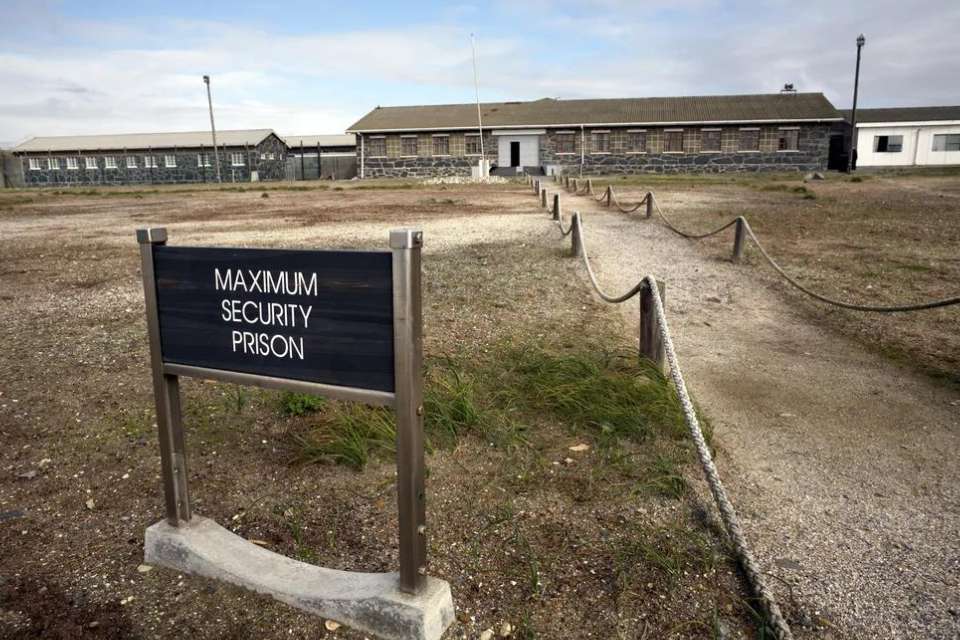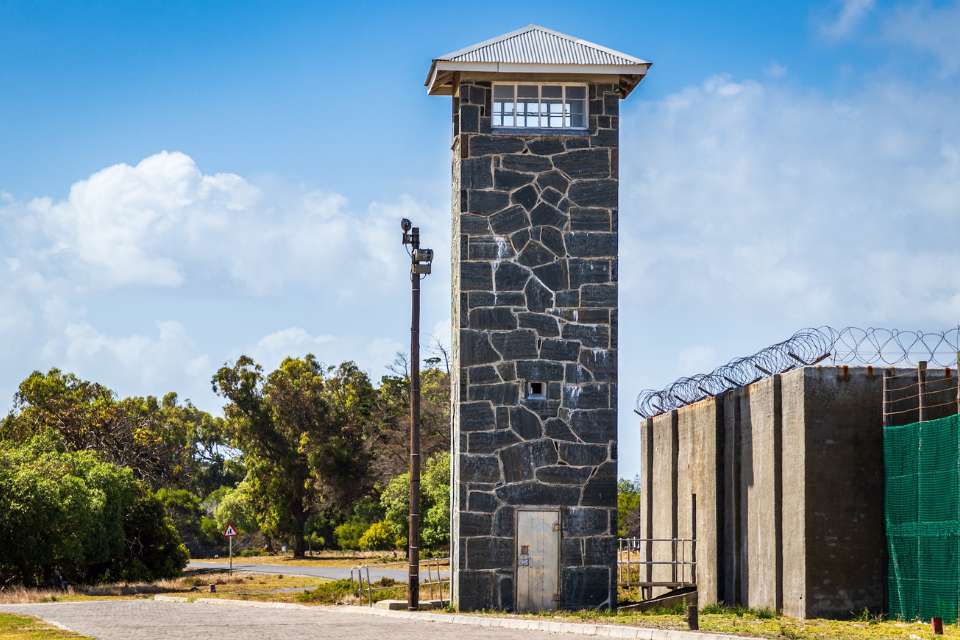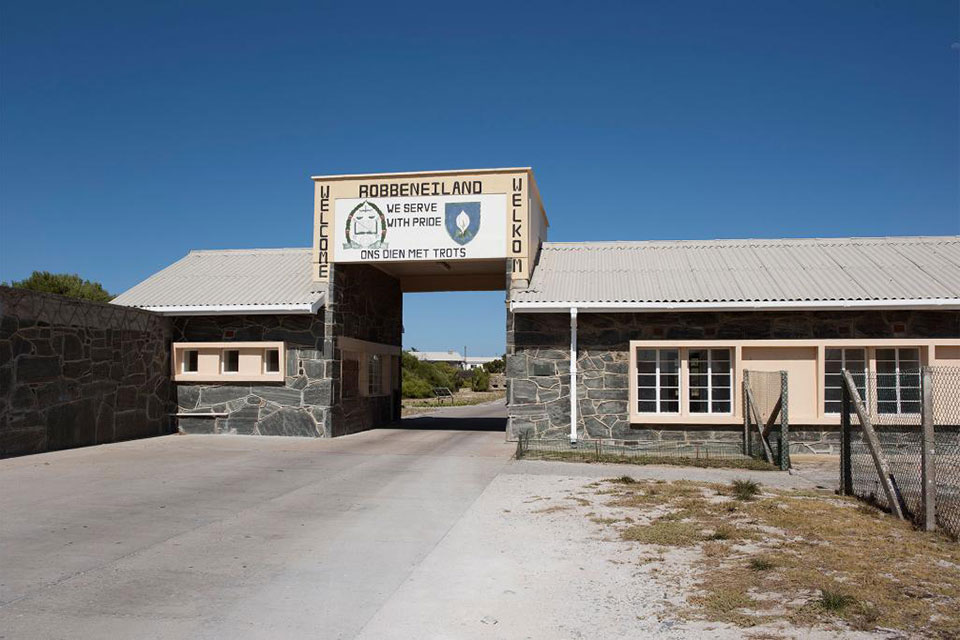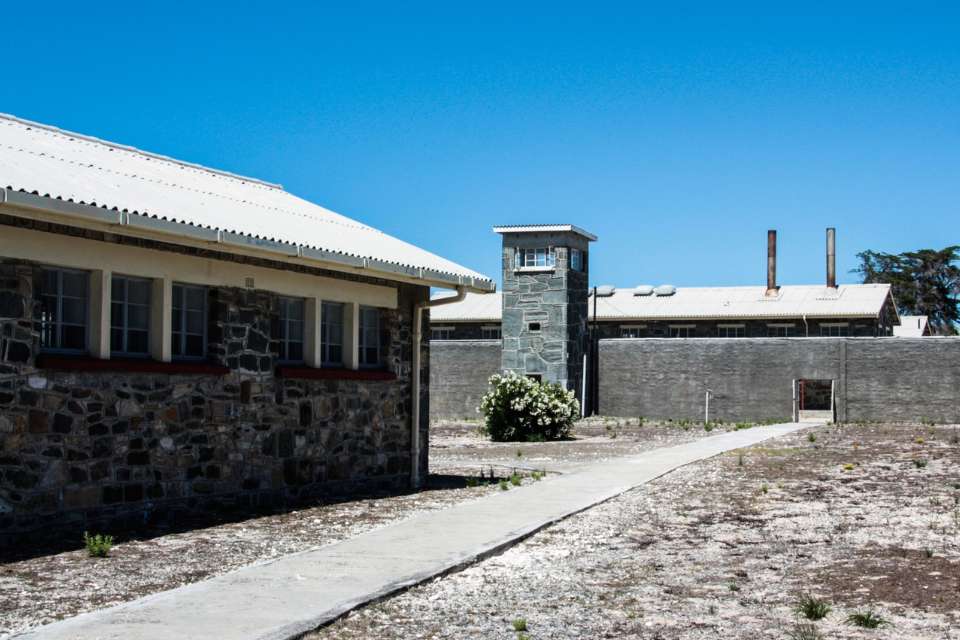Welcome to our article on the fascinating history of Robben Island. In this piece, we will delve into the purpose and significance of the island, shedding light on its construction and its role in South Africa’s fight against apartheid.
Explore with us as we uncover the rich tapestry of Robben Island’s past!
Key Takeaways:
- Robben Island was built for various purposes throughout history, including serving as a maximum-security prison.
- The island played a crucial role in the fight against apartheid, with notable political prisoners like Nelson Mandela being held there.
- Conditions on Robben Island were harsh and inhumane, particularly for the political prisoners.
- Robben Island holds great symbolic value, representing the triumph of the human spirit and the victory of democracy over oppression.
- Today, Robben Island is a protected UNESCO World Heritage site, managed by the Robben Island Museum Council.
Historical Uses of Robben Island

Before becoming a political prison, Robben Island had a diverse history with multiple uses over the years. In the 17th and 18th centuries, it served as an important stopping point for ships, providing fresh water and meat for voyages.
Additionally, from 1846 to 1931, the island housed a leper colony, providing care and isolation for those afflicted by the disease. Furthermore, Robben Island also served as a home for the mentally ill during this time.
During the period of British occupation, the island functioned as a whaling station, playing a significant role in the whaling industry. It served as a base for hunting and processing whales for their valuable resources.
Robben Island’s history is layered with different uses and purposes, reflecting the changing needs of society and the island’s strategic location. It is a testament to the island’s adaptability and the resilience of its inhabitants throughout the centuries.
Robben Island as a Political Prison

During the mid-20th century to the 1990s, Robben Island served as a notorious political prison. This remote island became the confinement site for Black political prisoners, including the iconic leader Nelson Mandela.
These prisoners were courageous activists who dedicated their lives to fighting against apartheid, the oppressive racial segregation system in South Africa.
Robben Island stands as a poignant symbol of the resilience and determination of these political prisoners. Despite enduring immense hardship, they never wavered in their pursuit of justice and equality.
The island became a testament to the indomitable spirit of humanity and the ultimate triumph of democracy over oppression.
Conditions on Robben Island
During its dark history, Robben Island prison became notorious for its harsh and inhumane conditions, particularly for the political prisoners held captive there.
The prison functioned as a maximum-security facility, where inmates experienced both physical and psychological abuse.
Political prisoners on Robben Island were subjected to unhealthy treatment, often enduring poor living conditions. The intent behind the isolation and mistreatment was to break their spirits and discourage their resistance.
However, despite the oppressive conditions, the prisoners displayed remarkable resilience and determination.
Robben Island’s Symbolic Value
Robben Island holds great symbolic value in South Africa’s history. It serves as a powerful testament to the triumph of the human spirit, the fight for freedom, and the victory of democracy over oppression.
The island’s historical significance is deeply rooted in the struggles faced by political prisoners who were incarcerated there during the apartheid era. These prisoners, including iconic figures like Nelson Mandela, fought passionately against the racist and discriminatory system of apartheid.
The buildings on Robben Island stand as enduring reminders of the resilience and courage displayed by these political prisoners. They bear witness to the sacrifices made in the pursuit of justice and equality. Each brick and corridor echoes with the stories of those who fought for a better future.
Robben Island’s symbolism goes beyond its physical structures. It represents hope, perseverance, and the indomitable spirit of the human beings who refused to be silenced. In the face of adversity, they held onto their beliefs, inspiring generations to come.
Today, Robben Island stands as a symbol of freedom and democracy, a beacon of light in South Africa’s history. It serves as a place of reflection and remembrance, reminding us of the importance of safeguarding our hard-won rights and never taking them for granted.
Visiting Robben Island allows us to connect with the past and pay tribute to those who fought for justice. It offers a profound and humbling experience, reminding us of the power of the human spirit to overcome the darkest of times and prevail.
Protection and Management of Robben Island

Robben Island holds a special place in history and is recognized for its significance on a global scale. In 1999, it was designated as a UNESCO World Heritage site, acknowledging its importance in preserving humanity’s cultural and natural heritage.
As a National Heritage Site in South Africa, Robben Island enjoys legal protection, ensuring its conservation for future generations. The responsibility for managing the island falls under the purview of the Robben Island Museum Council, which oversees its day-to-day operations.
The management of Robben Island revolves around three key pillars: conservation, interpretation, and visitor management. Conservation efforts are aimed at preserving the integrity of the island’s historical buildings and environmental assets, ensuring that they retain their authenticity and value.
Interpretation plays a vital role in allowing visitors to connect with the island’s history.
Through guided tours, exhibitions, and educational programs, the rich and diverse stories of Robben Island are shared, providing a deeper understanding of its past and its significance in South African history.
Visitor management is another crucial aspect of Robben Island’s management. As the island’s popularity continues to grow, efforts are made to strike a balance between providing access to visitors and protecting the site’s fragile ecosystem.
Ensuring a sustainable number of visitors is essential in preserving the island’s natural and cultural heritage while offering an informative and enriching experience.
In conclusion, the protection and management of Robben Island as a UNESCO World Heritage site are of paramount importance.
Through careful conservation, meaningful interpretation, and responsible visitor management, Robben Island continues to serve as a symbol of resistance, resilience, and the strength of the human spirit, inspiring generations to come.
Conclusion
In conclusion, the construction and history of Robben Island have given rise to its profound and significant historical narrative.
Once a mere resupply point, the island underwent a transformation to become a political prison, carrying the weight of South Africa’s struggle against apartheid and the ultimate triumph of democracy. Today, Robben Island stands as a powerful symbol of resilience, freedom, and the indomitable human spirit.
The historical significance of Robben Island cannot be overstated. It serves as a living testament to the determination and sacrifice of the political prisoners who endured the harsh conditions within its maximum-security prison walls.
Their unwavering commitment to justice and equality propelled South Africa towards a future defined by freedom and democracy.
As a UNESCO World Heritage site and National Heritage Site of South Africa, Robben Island is carefully protected and managed. Its historical buildings are preserved to maintain authenticity, while efforts are made to ensure a meaningful and educational experience for visitors.
By exploring the island’s history and engaging with its profound narrative, we gain a deeper understanding of the resilience and triumph of the human spirit in the face of adversity.
FAQ
Why was Robben Island built?
Robben Island was initially built and used for various purposes, including as a resupply point for ships, a leper colony, a mental asylum, and a whaling station.
However, its most well-known use was as a maximum-security prison for political prisoners during the apartheid era in South Africa.
What is the history of Robben Island?
The history of Robben Island is complex and spans several centuries. It has served as a prison, hospital, and military base at different periods. From the 17th and 18th centuries, it functioned as a resupply point for ships.
Later, it housed a leper colony from 1846 to 1931 and was used as an asylum. During British occupation, it served as a whaling station.
What was the purpose of Robben Island?
The purpose of Robben Island evolved over time. Initially, it was a stopover point for ships to restock supplies. It later became a place to isolate those with leprosy and mental illness.
During the apartheid era, its purpose shifted to housing political prisoners who fought against the oppressive system of racial segregation in South Africa.
What is the significance of Robben Island?
Robben Island holds immense historical significance. It serves as a symbol of the struggle for democracy and freedom against oppression and racism.
The prison buildings on the island bear witness to the hardships endured by political prisoners, including Nelson Mandela, and their enduring spirit in the face of adversity.
What were the conditions like on Robben Island?
The conditions on Robben Island, especially for the political prisoners, were harsh and inhumane. The prison was a maximum-security facility where inmates endured physical and psychological abuse.
They faced poor living conditions and unhealthy treatment. These conditions were meant to break their spirits, but the prisoners displayed remarkable resilience.
What is the symbolic value of Robben Island?
Robben Island holds great symbolic value as a testament to the triumph of the human spirit, the fight for freedom, and the victory of democracy over oppression.
It represents the resilience of political prisoners who fought against apartheid and serves as a powerful reminder of their struggle and the importance of equality and justice.
How is Robben Island protected and managed?
Robben Island was declared a UNESCO World Heritage site in 1999 and is legally protected as a National Heritage Site in South Africa. The Robben Island Museum Council is responsible for its management, which includes conservation, interpretation, and visitor management.
Efforts are made to preserve the historical buildings and maintain its authenticity while accommodating visitors.

